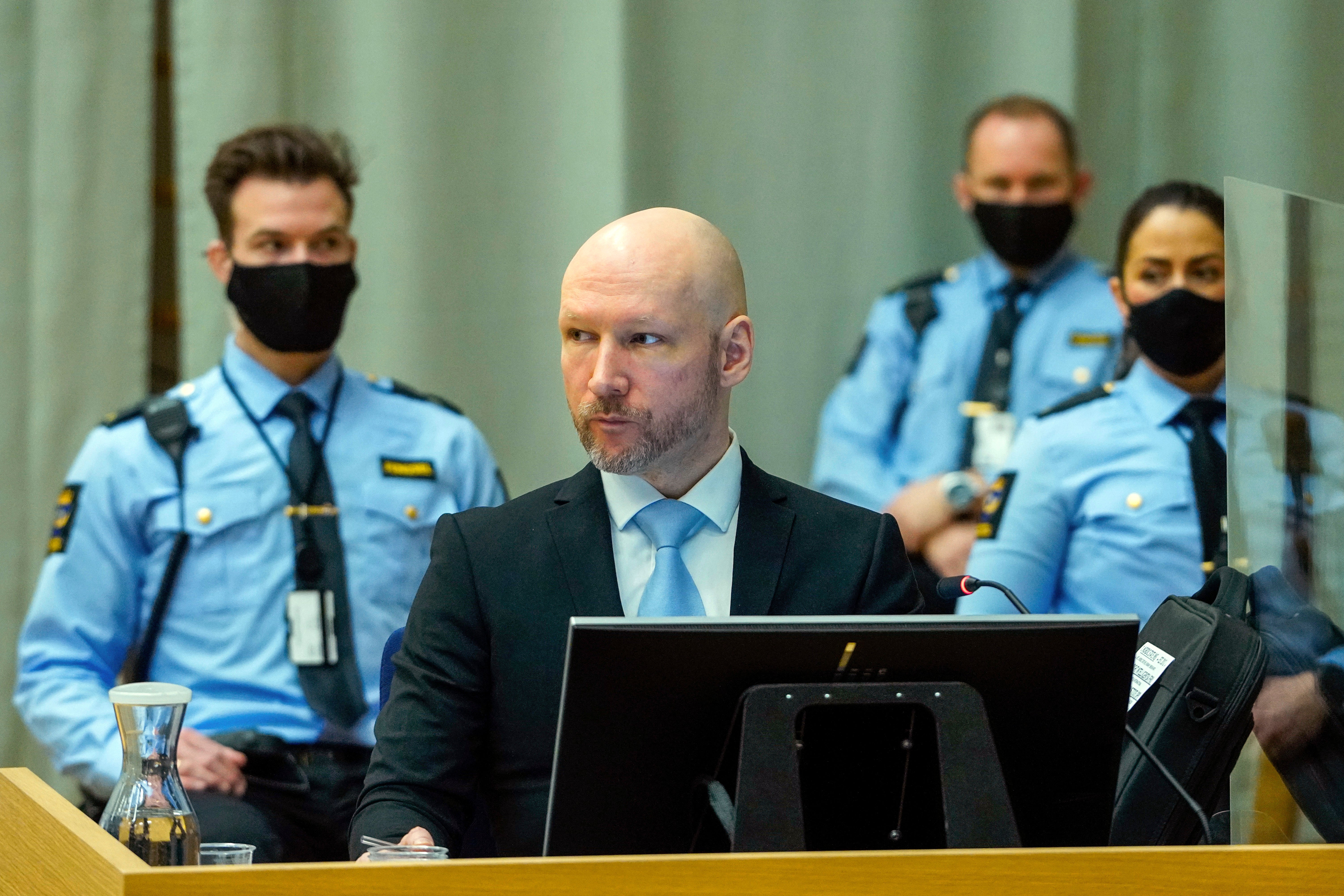Norway court rejects mass killer Breivik's parole request
A Norwegian court has rejected the parole request made by mass killer Anders Behring Breivik a far-right extremist who killed 77 people in 2011, saying he must remain in prison

Your support helps us to tell the story
From reproductive rights to climate change to Big Tech, The Independent is on the ground when the story is developing. Whether it's investigating the financials of Elon Musk's pro-Trump PAC or producing our latest documentary, 'The A Word', which shines a light on the American women fighting for reproductive rights, we know how important it is to parse out the facts from the messaging.
At such a critical moment in US history, we need reporters on the ground. Your donation allows us to keep sending journalists to speak to both sides of the story.
The Independent is trusted by Americans across the entire political spectrum. And unlike many other quality news outlets, we choose not to lock Americans out of our reporting and analysis with paywalls. We believe quality journalism should be available to everyone, paid for by those who can afford it.
Your support makes all the difference.A Norwegian court ruled Tuesday that far-right extremist Anders Behring Breivik, who killed 77 people in 2011, must remain in prison, saying there remains “an obvious risk” he could return to behavior that led up to the massacre.
Last month, Breivik faced a parole hearing before the three-judge Telemark District Court where he professed white supremacist views and flashed Nazi salutes on the hearing’s opening day, while claiming to have renounced violence.
But the court said he remains a potential threat.
“Because his psychiatric condition is unchanged, there is an obvious risk that he will fall back on the behavior that led up to the terrorist acts on July 22, 2011,” the court said in its ruling.
Breivik is serving Norway’s maximum 21-year sentence for setting off a bomb in Oslo’s government district and carrying out a shooting massacre at a summer camp for left-wing youth activists.
He was declared sane at his trial, although the prosecution argued that he was psychotic. He didn’t appeal his sentence but unsuccessfully sued the government for human rights violations for denying him the right to communicate with sympathizers.
Breivik could be held longer than 21 years under a provision that allows authorities to keep criminals in prison for as long as they’re considered a menace to society.
During last month's hearing, prosecutor Hulda Karlsdottir argued Breivik still is “a very dangerous man” and “has not shown any genuine remorse in court.”
A psychiatrist who has observed him since 2012, testified that Breivik can’t be trusted while a prison official told hearing that “there is an imminent danger” that, if released, Breivik would again commit serious crimes.
Breivik's lawyer Øystein Storrvik said his client should be released to prove that he is reformed and no longer a threat to society, and that is not possible to prove while he is in total isolation.
Storrvik called it “a paradox that a person is treated so badly in prison that he never gets better. He never gets out.”
Tuesday's ruling can be appealed.